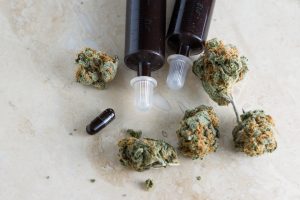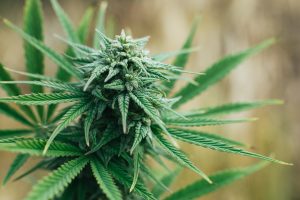The Autism Society defines Autism Spectrum Disorder (ASD) as a “complex developmental disability;” of which “signs typically appear during early childhood and affect a person’s ability to communicate and interact with others. ASD is defined by a certain set of behaviors and is a ‘spectrum condition’ that affects individuals differently and to varying degrees.
There is no known single cause of autism, but increased awareness and early diagnosis/intervention and access to appropriate services/support lead to significantly improved outcomes. Some of the behaviors associated with autism include delayed learning of language; difficulty making eye contact or holding a conversation; difficulty with executive functioning, which relates to reasoning and planning; narrow, intense interests; poor motor skills and sensory sensitivities. Again, a person on the spectrum might follow many of these behaviors or just a few, or many others besides. The diagnosis of autism spectrum disorder is applied based on analysis of all behaviors and their severity.”
What is ASD?
ASD is one of several neurodevelopmental disability disorders, including Asperger’s Syndrome (AS), which can be genetically, virally, and/or environmentally caused. Autism, the more severe form of the disorder, is a neural pathway development disorder that is generally found in early development with most sufferers being diagnosed by age four and which directly affect processing of information in the brain by altering nerve cells and their proper synapses in the cerebellum. Asperger’s, the less severe spectrum disorder, may not be recognized until the later stages of development. Asperger’s generally does not affect language, although it can, but it does share many of the social deficits as Autism that are more noticeable as a child ages.
Spectrum disorders often co-occur with many other conditions such as epilepsy, allergic disorders, GI tract conditions, Tourette’s syndrome, obsessive compulsive disorder (OCD), social disorders, generalized anxiety disorder, depression, migraine disorder, bipolar disorder, and sleep problems; As well as extreme behaviors including violent outbursts, severe agitation, and self-harm.
ASD is a difficult and devastating diagnosis for any family and the chance that your child or grandchild may be affected is growing every year. This article presents research to explain why there is such a steep rise in ASD, suggests what we have parents can do to prevent and recover our children, and raise awareness of the shocking increased risks we face as a society.
A 2016 Center for Disease Control and Prevention report titled, “ADDM Autism Prevalence Report,” stated that autism had risen to one in every 68 births in the United states for children born in 2002 and 2004, as compared to one in 125 children born in 1996. According to the study, “ASD is nearly 4.5 times more common among boys (1 in 42) than among girls (1 in 189).” to provide you with shocking historical background over the last 35 years, 1983 saw only one in 10,000 children diagnosed with spectrum disorders versus the one in 68 we see today. That’s over a 14,000% increase in three decades time!
Autism in the recent past
Prior to the mid-1960s mothers were blamed for their child’s autism because they were “cold and distant” towards their child. Referring to these mothers as “refrigerator mothers,” society began a systematic shunning of all parents who had an autistic child. This theory abounded throughout the medical community because of a book written by one Bruno Bettlehiem, a man who was later found to be a fraud in most areas of life, even though his work had no solid basis to support such a claim. During the same time period, a then newly graduated experimental psychology doctor, Dr. Bernard Rimland, came on the scene and single handedly changed everything for these parents because his own child was born with autism. Rejecting the “refrigerator mother” theory out of hand due to his and his wife’s own experience, Dr. Rimland spent the next five years of his available free time researching every article and study ever performed on autism and was eventually encouraged by family and peers to write his own groundbreaking book called Infantile Autism: The Syndrome and its Implications for a Neural Theory of Behavior.
As a result of this book, Dr. Rimland received widespread support and gratefulness from societally shunned parents of autistic children everywhere. In 1965, he launched the Autism Society to get his gathered research into the hands of parents and in 1967 he launched the Autism Research Institute. Although this hero of autistic families everywhere passed away in 2006, the society and institute and his work has continued to come to the aid of these families through support, educating physicians, and ongoing research.
His work has helped many children recover from or manage their autism. He helped many researchers explore the gut-brain connection and directly contributed to the groundbreaking therapies and diet treatments, including use of vitamins such as B12 and vitamin D. In fact, Dr. Rimland was the first to alert and four warn of the explosive growth of autism due to the use of mercury and other neurotoxins in our children’s vaccines; And our use of glyphosate, a weed killer that is genetically modified in our food and in our vaccines.
Dr. Rimland was also an early advocate of cannabis use in autism, stating, “I’m not pro-drug, but I am very much pro safe and effective treatment, especially in cases where in autistic individual’s behaviors are devastating and do not respond to other interventions. Early evidence suggests that medical marijuana may be an effective treatment for autism, as well as being safer than the drugs that doctors routinely prescribe.”
Causes of autism
There is no single known cause for autism or any of the disorders associated with it, but it is strongly believed that it can be caused genetically, virally, and environmentally through toxins in vaccines, food, air, and water. Once inflammation is in the body, the cascade of damage will continue unless it is stopped. Therefore, it is important to address the gut-brain connection. Many of us in Naples have learned from our own local physician and teacher, Dr. Perlmutter, through his book, Grain Brain, an inflamed gut can cause neurological problems, disorders, and diseases. It stops our liver’s ability to clean out toxins, allowing them to enter the bloodstream creating inflammatory storm. Inflammation throughout the body upsets the brain by causing gliosis, which is defined as a reaction of the central nervous system to injury of the brain or spinal cord period since our children are attacked by glyphosate even during development of fine neural systems as fetuses, they begin at a disadvantage, are immediately vaccinated at birth, and continued to be assaulted their entire developmental years and throughout their lives unless we stop feeding the inflammation.
Autism and the endocannabinoid system
Dr. Christian Bogner, a former researcher for plant-based treatment of ASD says, “The endocannabinoid system plays a part in the pathophysiology of autism. Protective brain mechanisms are interrupted and neuroinflammation occurs. Organophosphates are potent inhibitors of crucial brain enzymes. The systematic consequences of defective microglial signaling, nagalase surges, and GcMAF metabolism are interconnected into the basic idea that autism is an environmentally triggered neuroinflammatory condition. When we dive deep into brain mechanisms in autism, you realize that localized brain tissue is inflamed from foreign substances. There is a plethora of evidence in the scientific literature that inflammation, mostly in the cerebellum of the brain, is triggered by pesticides and herbicides, aluminum, and other adjuvants in vaccines, human DNA, and viruses.”
To correct these situations in our children and create an internal environment of recovery for them, we can take several positive steps forward:
- Insist on clean vaccines and stop injecting the ones with metals, glyphosate, polysorbate 80 (which is a chemical used in brain cancer chemotherapy to open up our blood-brain barrier) and other toxins. This includes pregnant mothers receiving vaccinations during pregnancy.
- Clean up your family’s diet as much as possible by using organic foods only to avoid herbicides, pesticides, antibiotics, and steroids in our foods prior to and after conception in birth. Test for celiac disease in lactose intolerance as well as allergies if any GI problems appear.
- Ensure our children have enough vitamins D3, K2, folic acid, B6 and B12 at the same time we avoid the use of fluoride and other neurotoxins.
- Make whole goat’s milk GcMAF key for products at home. GcMAF Is a homemade high probiotic kefir yogurt that is taken with vitamin D3 and K12 to help the body zone microphage is to activate the immune system and clean up our systems.
- Work with your children through social, behavioral, and language therapy to help them communicate and recognize all forms of communication properly.
- Finally, we need to strongly consider taking that extra step to believe that our own government’s patent #6630507 titled, Cannabinoid as Antioxidants and Neuroprotectives which clearly states it has surprisingly been found that cannabidiol in other cannabinoids can function as neuroprotectant’s, even though they lack NMDA receptor antagonist activity. This discovery was made possible because of the inventors recognition of a previously unanticipated antioxidant property of the cannabinoids in general (and cannabidiol in particular) that functions completely independently of antagonism at the NMDA, AMPA, in kainate receptors. Hence the present invention includes methods of preventing or treating diseases caused by oxidative stress, such as neuronal hypoxia, by administering a prophylactic or therapeutically effective amount of cannabinoids to a subject who has a disease caused by oxidative stress.”
The endocannabinoid system is in our body to restore and maintain homeostasis, a big word that simply means “a condition of healthy balance or equilibrium within its internal environment, even when faced with external changes.” Risperdal, Seroquel, Abilify (anti psychotics), Ritalin, and Adderall (amphetamines), Prozac, Paxil and Celexa (serotonin reuptake inhibitors) and Depakote, Topamax and Limictal (anti-seizure), while they might provide some relief and or may somewhat mask the extreme behaviors and seizures often associated with ASD, aren’t going to recover a child from autism and in fact may proliferate the inflammation. Medications have their place, but in the cases of these medications, many parents find it more like using a sledgehammer to drive in a screw, as children with ASD are often extremely sensitive to these medications.
Low doses of cannabis oil fine tune the endocannabinoid system. According to recent research, anecdotal evidence from many families of autistic children, and the government patent, cannabis is far more likely to have long term success when used in conjunction with cleaning up in bringing balance to a child’s internal environment than any of these medications typically prescribed, and will do so without risk of creating other problems or causing death.
More to come
There is exciting research out there exploring diet types, determining what dosage and which cultivars or strains work best for ASD, and which vitamins work to aid the body in healing inflammation, which in turn brings calming relief to the brain while enabling the sufferer to build more neural pathways to modify or even modulate many of the problems associated with autism. Used in complementary combination, parents today have every hope that they can gain control over the disorder that has taken control of their child.
As in 1964, the days of stigma must end for the future of our children. Cannabis, as an adjunct to standard treatments should not be feared, rather it should be explored in utilized as a standard treatment and we must ensure our state laws allow ASD and all associated disorders are listed as one of the qualifying conditions for cannabis use. Happy healing!





